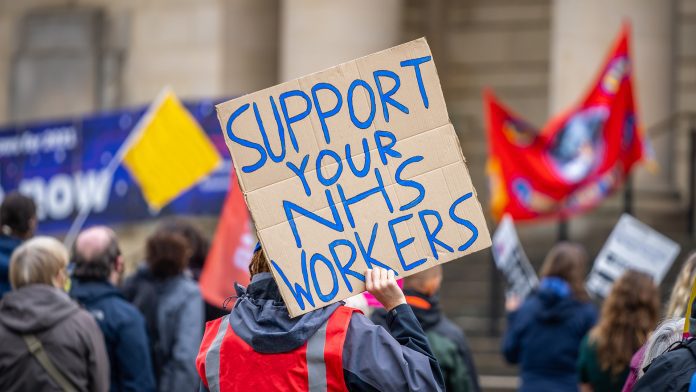
NHS strike action is anticipated to disrupt almost all planned care as junior doctors and consultants plan a walkout from tomorrow.
The latest NHS strike marks the tenth month of industrial action across the health service as junior doctors and consultants campaign for pay restoration.
When will the NHS strike take place?
The consultant-led strike is scheduled to kick off on Tuesday, September 19, followed by the participation of junior doctors on Wednesday, September 20.
On Wednesday, from 7am onwards, both junior doctors and consultants will provide staffing levels akin to Christmas Day, ensuring that emergency care remains available.
Subsequently, both groups intend to strike again on October 2, 3, and 4, continuing to offer essential Christmas Day cover during these periods.
Why are junior doctors and consultants striking?
The British Medical Association (BMA) has outlined three aims of the NHS strike:
- To achieve full pay restoration to reverse the steep decline in pay faced by junior doctors since 2008;
- To create a mechanism with the government to prevent future declines in the cost of living and inflation; and
- To reform the Doctors’ and Dentists’ Review Body (DDRB) process so that pay increases are recommended independently and fairly to safeguard the recruitment and retention of junior doctors.
How will the strike affect the NHS?
This ongoing industrial action marks the tenth month of turbulence across the NHS, which has resulted in the rescheduling of over 885,000 inpatient and outpatient appointments.
Despite the ongoing challenges, NHS staff remain dedicated to delivering the best possible care to patients.
During the previous industrial action last month, approximately 45,800 appointments were disrupted, leading to an average of 6,000 staff members being absent from work each day due to the NHS strike.
In anticipation of the extensive strike action, the NHS is urging the public to maintain their normal healthcare routines.
In life-threatening situations, individuals should continue to dial 999 or visit A&E. For other health concerns, the online service 111 is available. GPs and pharmacies remain accessible for health advice and appointments, unaffected by the strike.
NHS national medical director, Professor Sir Stephen Powis, commented: “The NHS has simply never seen this kind of industrial action in its history. This week’s first-ever joint action means almost all planned care will come to a stop, and hundreds of thousands of appointments will be postponed, which is incredibly difficult for patients and their families and poses an enormous challenge for colleagues across the NHS.
“We’re very grateful to the public for using the NHS wisely during this period when we will be prioritising emergency care. In a life-threatening situation, use 999 and A&E as normal, but for everything else, use 111 online or use services in the community that are largely unaffected, like GPs and pharmacies. Patients who have an appointment and who haven’t been contacted should attend as normal.”








